May 6, 2020
Nothing like a pandemic to highlight the importance of maintaining cleanliness and good hygiene, huh? I like to think of myself as a trailblazer as I’ve always been a stickler for copious hand-washing (as my children would undoubtedly attest to). And, lucky for me, my wife Melissa is pretty into cleaning as well. In fact, she just happens to be the Chief Cleaning Officer of MaidPro, a residential cleaning franchise with locations across North America. As a nationally recognized authority on cleaning, Melissa has been featured in numerous national media outlets from Martha Stewart and realsimple to the Washington Post. Lately, she’s been hard at work on the frontlines of the cleaning industry’s response to COVID-19. So, who better to recruit to answer some of the Aria staff’s most pressing cleaning questions? Take it away, Melissa!
- What are the best products/techniques for cleaning our devices like phones and tablets?
The key to cleaning technology is to minimize water usage, so liquid doesn’t seep into seams to cause electrical damage. Lightly dampen a soft towel, ideally microfiber, with your favorite glass and all-purpose cleaner and wipe the phone gently to remove surface soils. Once clean, you can disinfect your device by wiping it down with 70% isopropyl alcohol and letting it air dry.
- What is a frequently/easily overlooked area/item that we should be cleaning, but are not?
For managing any infectious disease, frequent cleaning of high-touch surfaces like door handles and appliance buttons is a must. One of the most used, yet ignored, items are remote controls. To safely clean remotes, wipe them first with a lightly dampened towel to remove the grime. To disinfect, a trick is to flip the remote upside down and gently blot it with a towel dampened with disinfectant, so the surface gets wet without soap sliding inside down the buttons.
- What’s something that we actually don’t have to worry about cleaning (for example, we were first told we needed to wash our groceries, but now experts are telling us we don’t need to)?
A lot of people are channeling their stress into cleaning things they could simply ignore. COVID-19 dies on cardboard in 24 hours and plastics in three days, so if you don’t need the item immediately, just leave your potentially infected purchase in the shopping bag out of the way for three days and you’re good to go; no frantic scrubbing with Lysol required. Also, never wash your produce with dish soap, as fruits and vegetables are porous and will absorb the soap instantly, which can make you sick, even after cooking. Good news is COVID-19 does not seem to be transmitted via food, just its packaging, so rinse your produce in water or a specially formulated veggie wash like you usually would.
- When can you use less harsh cleaners like vinegar? Do non-toxic cleaners like Mrs. Meyers products even work to combat COVID-19?
It all comes down to what level of disinfection you need at that moment. Any soap – “green” included – will remove 97% of germs thanks to the power of surfactants, which are the component of soap that bonds water to oils (which happens to be the outer lipid layer of most viruses and bacteria). Sanitizers and disinfectants address that last 3%, taking you to 99.999% germ kill, which matters when you’re dealing with a disease that no one is immune to. If you are wiping your dinner table after a meal, any gentle soap is up to the task. However, if you are cleaning high-touch points in your home, like the front door knob after you’ve been grocery shopping, it’s time to pull out the big guns. The rule is you have to pre-clean before you disinfect, so feel free to enjoy your Mrs. Meyers for the initial wipe down and then break out the Clorox. Vinegar, while great on hard water stains, only kills 80% of germs when used straight, so it doesn’t bring much power to the party. Best to stick with the real stuff.
- Is there any way we can still have cleaning people in our homes?
If you are hiring any essential worker to service your home during this pandemic, the key question is, do you trust them to have been properly trained to manage cross contamination and have the proper disinfectants and PPE to do so? If your house cleaner or plumber mishandles or skips their PPE and tools, they can easily drag germs from home to home. This is not the time to wing it with some random person you found off Craigslist. Reach out to a professional company and ask “What are your protocols to manage COVID-19 cross contamination?” If they stammer, don’t hire. If they have clear list of PPE requirements, segregated supplies, tool disinfection, social distancing policies, and employee screening, then you are in good hands.
- With all this cleaning and hand-washing, how do we save our hands from dryness and cracking?
Professional house cleaners were constantly washing their hands before it was considered cool, so we know all the tricks. The way to save your poor raw hands is to help them heal overnight. Before bed, moisturize your hands heavily, followed by a thin layer of Vaseline or Aquaphor to seal it all in. Put your deep conditioned hands in cotton gloves (or socks in a pinch) to keep your bedsheets clean, and head off to sleep. Your hands will feel 100x better by morning. It won’t be your sexiest look, but neither are those snake skin hands, so you might as well fix the problem.
Do you have a question for Melissa? You can reach out to her at MaidPro’s Facebook or Twitter pages. To learn more about how MaidPro is providing essential cleaning services while still protecting their cleaners and clients, see MaidPro’s Coronavirus Page. And, as always, stay tuned to the Aria blog and follow @ariamarketing on Twitter to stay “in the know.”

